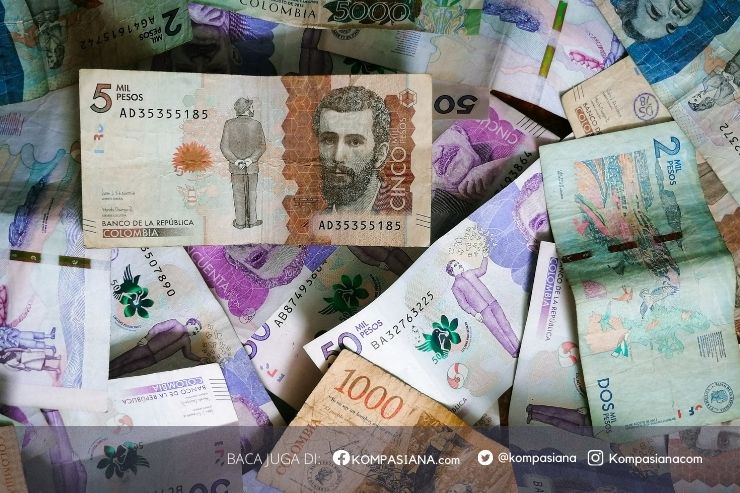As cities grow up following its economic development, more business and people come to pursue better opportunities and lives. In Indonesia, cities like Jakarta, Surabaya, Medan and Bandung are getting bigger and more integrated with its periphery creating an agglomeration economy. By the time, as the city center gets populated, businesses present to utilize the advantage of the scale, take over the space and push the property price up. As a consequence, people move outward looking for more affordable housing while keeping their job in the city center. Thus, to balance their need of working and living, they pick up settlements with adequate access to their workplace. In Greater Jakarta, surrounding cities like Bogor, Bekasi, and South Tangerang with good access to railway are among the top list for people to reside.
By living in the periphery, people get the benefit of more livable neighborhood with more accessible facilities, proximity to their children education, as well as less congested traffic. Nonetheless, the comfort has to be paid by the breadwinners who have to commute to their workplace. Some might be lucky since the workplace is not so far while the most have to spend more than an hour to reach the workplace.
Based on commuting survey (BPS, 2014), there are 1.4 million people from Jakarta periphery such as Bogor, Depok, Tangerang and Bekasi or known as Bodetabek flood Jakarta during day time to work. Combined with the commuter from inner Jakarta, the number tops 2.4 million. In addition, there are 256 thousand Jakarta residents commute outward. The top destinations are South Jakarta and Central Jakarta while the top origins are Bekasi, East Jakarta, and Depok.
The same survey reveals that 49% of the commuters travel 10 to 29 km to their workplace every day, while 33% of the commuters do more than 30 km. This distance is too far compare to that travelled by Singaporean which is 9.6 km at average. As a consequence, the time to travel in Jabodetabek are longer. Based on National Labor Force Survey (Sakernas, 2014), 48% commuters need 31 to 60 minutes to commute while another 34% spend 61 to 120 minutes. As a comparison, Singaporean need less than 40 minutes at average to commute using public bus or MRT. Furthermore, the portion of Singaporean who spend more than 60 minutes to commute is less than 6%, much lower than that in Jabodetabek which amount to 34%. As the distance to work is farther and the time to travel is further, the cost of commuting in Jabodetabek is expected to be much higher than the neighbor country.
Surprisingly, the cost to commute in Jabodetabek is relatively low. Data from National Socio-Economic Survey (Susenas, 2014) shows that mobility costs household 9% of their total expenditure in general. In Singapore, the number is 14%. Yet, it is premature to state that commuting cost in Jabodetabek is absolutely lower because the expenditure pattern between two countries should be taken into account. Lower-middle income people spend their income more for food while the higher income one spend more in non-food products and services.
For that matter, the mobility cost varies among different group of residents in Jabodetabek. The number of 9% is applied for average resident while for the lower-income residents, the number is only 5% or 4% lower than the average. The explanation goes to the transportation mode used.
The commuting survey (BPS, 2014) shows that in Jabodetabek the use of private vehicle numbers 70% of the transportation mode taken. Mostly, the vehicle are motorcycles which account up to more than 80% of the private vehicle. It means the transportation cost among the lower income group is low because they use motorcycle for commuting while the higher income group likely use car or taxi or public transport. Intuitively, the use of car or taxi in the higher income group will push the mobility cost higher compare to total expenditure. However, the use of public transport is supposed to reduce the transportation cost, isn’t it?
Compare to car, public transport is cheaper, but to motorcycle, it is more expensive. This is most likely what led the use of motorcycle in inner Jakarta is so common. On contrary, for those who reside in the outer area such as Bekasi, Depok, and Tangerang, public transport costs lower. The use of private vehicle for those who live in outer city and work in the city needs more gasoline, oil, and services due to the longer distance to travel.
Yet, the use of public transport compare to all transportation modes is still low in Jabodetabek. It amounts to only 27%, very low compare to that in Tokyo 50%, Singapore 63%, or Hongkong 90%. The main contributing factors are cheaper cost of commuting and less time to travel by motorcycle in inner Jakarta that is terribly congested. Moreover, the public transport is not efficient enough and yet integrated. For people who live in the outer area, the commuter line might help to bring them to Jakarta. Nevertheless, they still have to take angkot, bus, ojek, or bajaj to reach their workplace.
The poor public transportation system does not give extra benefit for commuters to switch. Moreover, it is not convenient enough to commute by especially that is provided by private company like metromini or angkot. In some cases, they make the traffic even worse due to their habit to stop at restricted area. Besides, the safety to commute with this mode is questionable.
Why public transport is important







